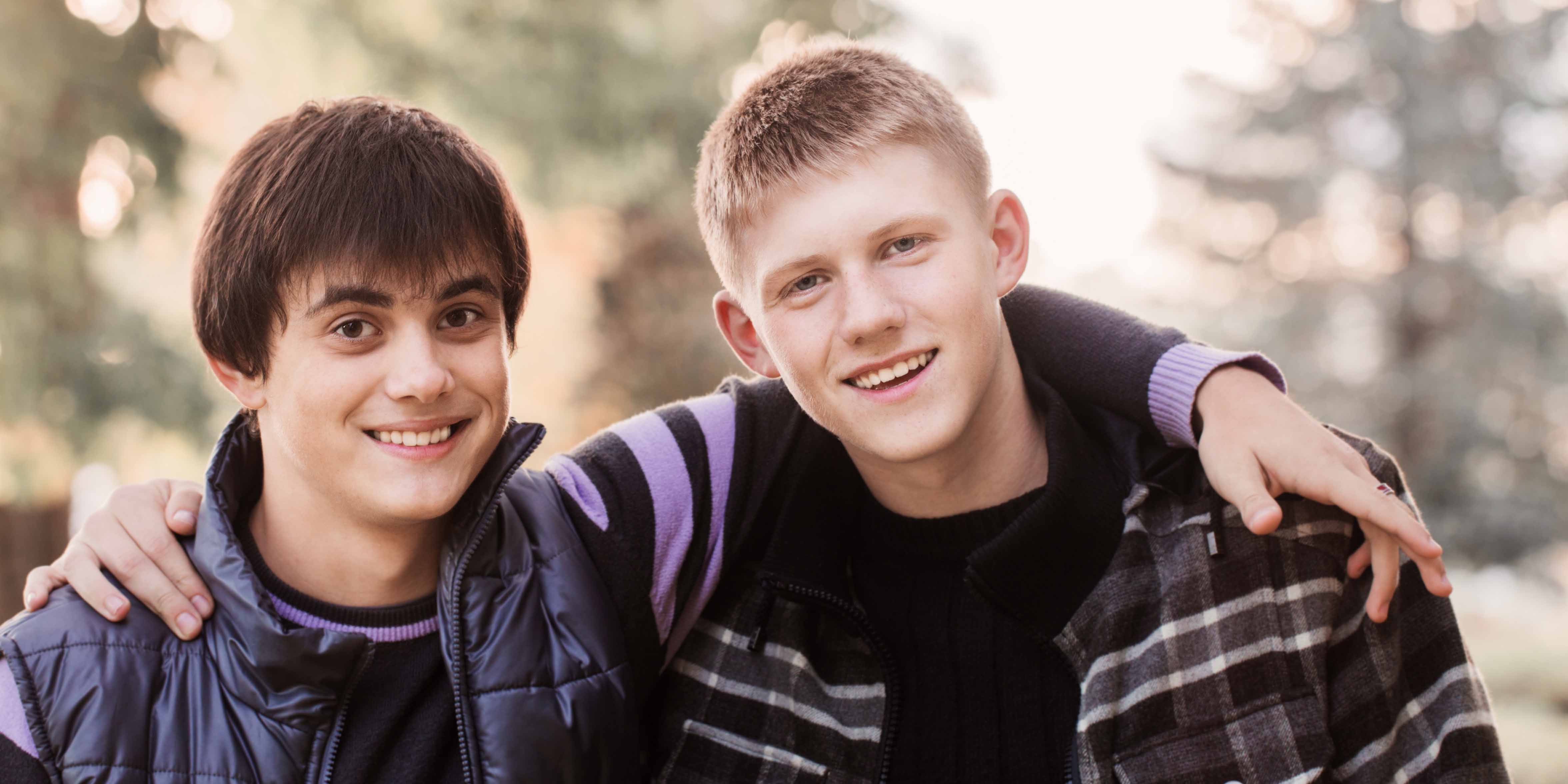What distinguishes the Gateway approach is our emphasis on brain-based learning and healing within the context of relationships.

Foundation of Our Approach
Gateway is a threshold. A young person's healthy life lies ahead. The key to the journey is in making new connections, both in the external world of relationships, and internally, by forming new positive mental maps within the brain.
The Twin Pillars of our Approach
What distinguishes Gateway from other adolescent treatment centers is our emphasis on brain-based learning and healing within the context of relationships.
Put simply, we believe that by understanding what’s happening in an adolescent’s brain at this formative stage of development – and by individualizing treatment through therapy rooted in relationships — we can help teens learn, grow, and heal.
Social Connections Inspire Synaptic Connections
Recent research about the brain has found that our brains are not hard-wired like a computer, but rather, change in response to experience. This is called neuroplasticity. The latest studies in neuroplasticity reveal that wherever we focus the brain’s attention is where it is actively re-wiring, making and reinforcing neural pathways. And our brains constantly form new pathways that help us make sense of the world, self regulate, and connect with others.
Dr. Daniel Siegel, a clinical professor of Psychiatry at UCLA’s school of medicine, has spent more than twenty years studying interpersonal neurobiology, a study he calls “the neurobiology of ‘we.’” His conclusion: the “we” connection is a powerful one. Just as relationships in the past have shaped our neural circuitry, new healthy relationships in the present constantly rewire us for connection and security.
Connect. Maintain. Teach. Apply.
In relationship-based treatment, Gateway clinicians draw on four principles as they work with youth in a therapy setting. Specifically, we:
Make a connection with each youth as soon as they enter Gateway. A teen's personality, interests, hobbies, strengths, and beliefs – these help us get to know each youth as an individual and over time, help us earn their trust.
Maintain the connection by revisiting their interests and beliefs frequently, showing them that healthy relationships are fostered through connected care and understanding.
Teach youth by modeling and motivating. We listen to our teens carefully, give them questions to think about, and gently guide them towards finding answers for themselves. Honest feedback is given, of course, but it is only given in a respectful manner with an underlying intention of caring.
Help them apply new relationship skills and desire for connection outside the therapy setting. As a youth develops greater self-awareness, we provide opportunities for them to practice being in relationship with peers, families, and the community.
Spark New Learning
Gateway’s "Sparks" brain-based approach is based on neuroscientific research by Dr. John Ratey, a clinical professor of psychiatry at Harvard Medical School. Ratey found that movement and exercise “supercharges” our mental circuits, enabling us to grasp information more easily and retain it longer.
Studies in school districts throughout the country are promising. Time and again, neuroscientists and educators have found that exercise stimulates the brain, priming it to learn. In addition, aerobic activity helps regulate systems that might be out of balance, making it a great therapeutic tool as well.
Here’s how Gateway “Sparks” our students’ efforts throughout the day:
Targeted Morning Fitness
The day gets off to a blood-pumping start with a dynamic fitness class originally designed by a former US Olympic Ski Team trainer to optimize the brain for learning. Youth chart their time on target each day and receive P.E. credit in school based on their level of participation.Brain Breaks
Throughout our three academic classes, we review and reinforce new concepts with a learning activity that involves movement.Movement in Therapy
Our teens are encouraged to physically “shift” negative thoughts and to express challenges and breakthroughs through movement. Movement and experiential intervention helps open adolescents up to expressing and resolving feelings, facilitating the healing process.Yoga and “Time In”
An emerging trend in education incorporates mindfulness and meditation into the school day in order to help students manage anxiety and stress. At Gateway, we have seen great gains from our daily yoga program as students learn to breathe, pay attention to inner feelings, and let go of frustration.
As central as the brain is in a person’s intellectual and emotional life, we are more than neural circuitry. Each teen has a spirit and a heart. And at Gateway, we are dedicated to providing the caring, supportive atmosphere that can touch their heart. And change their life.
Exploration and Integrated Learning
Gateway’s Exploration program is clinically designed, directed, and supported. Specifically, our program provides therapeutic opportunities that challenge our teens to explore new interests in the fine arts, film, and cultural and service activities in the community and in nature. Weekend activities are carefully designed, offering a mix of personal therapeutic opportunities and activities that build greater resilience, connection, and cooperation.
Our interventions and experiential approaches engage the creative exploration and novelty-seeking of adolescence. Providing opportunities for youth to seek out and engage in new experiences stimulates their senses, emotions, thinking, and bodies, which in turn creates a gateway to seeing the world through new lenses. This assists our students to harness the creative power of exploration and life-long learning.
Since every individual takes in information and learns in a unique way, Gateway's team creates therapeutic experiences and opportunities that:
accommodate different learning styles and levels of mental health functioning,
assist youth to reflect upon and understand through therapeutic processing, and then
facilitate transfer of learning to other areas of life.
Together, Gateway's clinical, academic, and residential teams create experiences that intentionally foster insight, and growth. Through these opportunities, our students become aware of what they’re capable of. They discover new depths of social and emotional skills, resilience and confidence, and take their potential to new heights.
